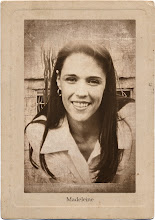What I understand from the term professional and in order to be called a “professional writer”, you need to have knowledge of your subject field. In our case – Writing! It is imperative that you have an outstanding command over the language you are working in, and in the majority of cases – English.
Apart from the skills that you need, you need to have proper practical experience. What does that mean? Having experience is something you only accomplish by writing and writing and more writing.
My personal opinion is that in the web writing industry you can never gain enough experience. Why? Simply because there are too many subject fields or niches one can write on, unless you focus on a specific niche and only write for that particular niche.
There are countless self acclaimed “professionals” who deliver work in a format that make editors cry! Ask yourself if the articles you present are ready to be published. Nine out of ten “professionals” do not make the mark on this factor alone!
Being a professional web writer demand from you to provide your client with an elevated standard of ethics and conduct while executing your task. As a professional you are obliged to present your client with amplified responsibility. A client expects from a professional to treat a project as if it is your own.
Disappointedly, another quality plenty of writers fail to establish. There is this current amateur attitude of “just getting the job done as soon as possible in order to get paid”.
If there is one thing that will show you the difference between a professional and an amateur writer, it is editing. An amateur is so attached to his piece of work he spent hours on that the slightest request for revision or editing will result in a fiery remonstration.
The professional on the other hand knows that there are various factors involved for various clients. With this said it does not mean that professional writers say thank you every time you request them to revise or change their work! However, they are well aware of the fact that a good editor makes them and their work appear only better. Writers who can not live with or accept editing on their work are not regarded as professionals for very long.
 The true professional writer is the one who have a passion for his work, adapt and change as needed with the fulfilling advantage of being paid for what he loves doing and does it for a living.
The true professional writer is the one who have a passion for his work, adapt and change as needed with the fulfilling advantage of being paid for what he loves doing and does it for a living. At the end of the day it seems that being a professional writer has got more to do with your approach and mind-set than the amount of creativity and competence you have.
Are You Professional or Not?























